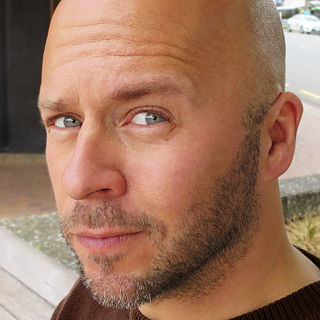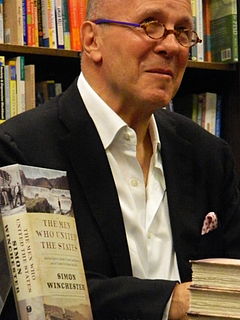A Quote by Philip Zimbardo
... In contrast to the "banality of evil," which posits that ordinary people can be responsible for the most despicable acts of cruelty and degradation of their fellows, I posit the "banality of heroism," which unfurls the banner of the heroic Everyman and Everywoman who heed the call to service to humanity when their time comes to act. When that bell rings, they will know that it rings for them. It sounds a call to uphold what is best in human nature that rises above the powerful pressures of Situation and System as the profound assertion of human dignity opposing evil.
Quote Topics
Above
Act
Acts
Assertion
Banality
Banner
Bell
Best
Call
Contrast
Cruelty
Degradation
Despicable
Dignity
Everyman
Evil
Fellows
Heed
Heroic
Heroism
Human
Human Dignity
Human Nature
Humanity
Know
Most
Nature
Opposing
Ordinary
Ordinary People
People
Powerful
Pressures
Profound
Responsible
Rings
Rises
Service
Service To Humanity
Situation
Sounds
System
Them
Time
Uphold
Which
Will
Related Quotes
As we have come to understand the psychology of evil, we have realized that such transformations of human character are not as rare as we would like to believe. Historical inquiry and behavioral science have demonstrated the "banality of evil" -- that is, under certain conditions and social pressures, ordinary people can commit acts that would otherwise be unthinkable.
So, that was Nature's way. The mosquito felt pain and panic but the dragonfly knew nothing of cruelty. Humans would call it evil, the big dragonfly destroying the mosquito and ignoring the little insects suffering. Yet humans hated mosquitoes too, calling them vicious and bloodthirsty. All these words, words like 'evil' and 'vicious', they meant nothing to Nature. Yes, evil was a human invention.
If anybody ever called our number, it would be picked up in less than 2 rings with a friendly voice answering, CD Baby. From 7 am to 10 pm, there was always somebody to pick up a call in 2 rings. No voice mail system; no routing to different departments. We treated our customers like our best friends. You don't route your best friend's call to an automated system!
Monsters remain human beings. In fact, to reduce them to a subhuman level is to exonerate them of their acts of terrorism and mass murder — just as animals are not deemed morally responsible for killing. Insisting on the humanity of terrorists is, in fact, critical to maintaining their profound responsibility for the evil they commit. And, if they are human, then they must necessarily not be treated in an inhuman fashion. You cannot lower the moral baseline of a terrorist to the subhuman without betraying a fundamental value.
In sum, doubling is the psychological means by which one invokes the evil potential of the self. That evil is neither inherent in the self nor foreign to it. To live out the doubling and call forth the evil is a moral choice for which one is responsible, whatever the level of consciousness involved.
Assuredly there is but one way in which to achieve what is not merely difficult but utterly against human nature: to love those who hate us, to repay their evil deeds with benefits, to return blessings for reproaches. It is that we remember not to consider men's evil intention but to look upon the image of God in them, which cancels and effaces their transgressions, and with its beauty and dignity allures us to love and embrace them.
I have heard and seen many examples of the cruelty that we are able to visit on one another during my time. . . I have also seen incredible forgiveness and compassion. Yes, each of us has the capacity for great evil. But for every act of evil there are a dozen acts of goodness in our world that go unnoticed. It is only because we believe that people should be good that we despair when they are not. Indeed, if people condoned the evil, we would be justified in losing hope. But most of the world does not. We know that we are meant for better.
Nature is not evil. The world occasionally shrugs its shoulders, and people get knocked off. The earth, for geological reasons that are well known, is a fairly risky place to live. To be evil, you have to have intent. Any remarkable natural happening in which no human will is employed cannot be regarded as evil.
Learn what not to expect. Irish catholic they get sh**** little rings. Irish women get crappy rings. Baptist get the worst because they get the rings under water. When it comes up, it's garbage. Jewish, big rings. Episcopalian big rings. Italians-the best, because they get them off of dead people, and second wives get the biggest rings of all.
Do I need to argue to Your Honor that cruelty only breeds cruelty? That hatred only causes hatred; that if there is any way to soften this human heart which is hard enough at its best, if there is any way to kill evil and hatred and all that goes with it, it is not through evil and hatred and cruelty; it is through charity, and love, and understanding?





































